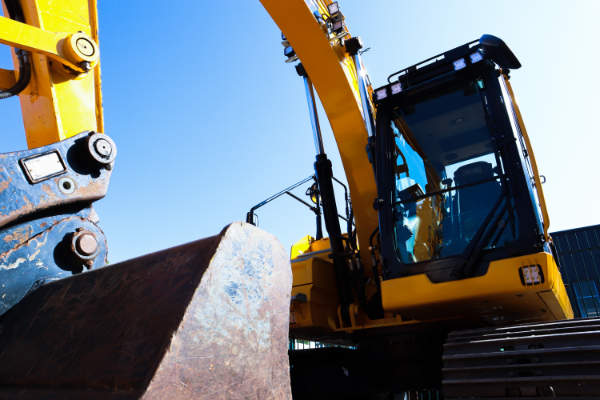Tips for Operating Plant Equipment in Winter
If you first once thought that the construction industry simply just shut down during the cold UK winter months, then you’d be wrong. With a rising popular demand for the increase of housing and infrastructure, it’s fair to say that things are somewhat booming. An enormous part of allowing all this to happen is down to the quality of plant equipment being operated 365 days a year. However, when it comes to the winter months, it is crucial to understand some fundamental checks that are required before, during and after using your plant equipment. In this article, we will help you reduce the risk of issues occurring, as well as provide you with the essential tips to keep your project moving and on schedule during the winter months.
Plant equipment is the same as a car. For them to work at their best, they require taking care of, especially when it comes to winter. Failure to do so can lead to unnecessary breakdowns, delays and effectively… loss of profits. It is important to remember that no matter your role on site, safety is everybody’s responsibility. If you see a potential hazard, always report it.
The first essential tip for operating plant equipment in winter, is to evaluate the status of the ground underfoot. Whether you are digging, walking, driving, lifting etc… you need to make sure that you are fully aware of the risks, BEFORE any plant operation begins. “Slips and trips” are one of the most common accidents on a construction site, therefore before you operate any type of machinery, you need to make sure that you are not going to cause any harm to yourself or anybody else.
Before operating plant machinery, always check the unit’s coolant and oil levels so that once it’s running, it can work to peak performance. Failure to do so will eventually lead to unnecessary breakdowns during operation.
In addition to this, you also need to check the hydraulic fluid, brake fluid and, if operating a telehandler or dumper truck, your tyre pressures as well. You will be surprised how many punctures can occur on a building site.
It is also vital to make sure that if you are operating plant equipment in winter, that you give the machine ample time to warm up. During the start-up procedure, review the exhaust system is working correctly, fuel levels are full and that all lights and signals are working correctly. If there is a possibility that you could be operating the machinery in the dark, (as daylight hours are limited in winter) then make sure any additional operating lights are also working correctly.
Visibility is a massive factor in plant operation safety and during the winter the risk factor only increases. Before operating, make sure that you remove any ice, snow, or even fallen leaves from their windscreens. If the cab has a windscreen wiper, then make sure that it works correctly and is not going to obstruct the operator’s vision, throughout the day. Once you have completed all the necessary start-up checks, the machinery will be ready to use. If the unit is left off for a period of time throughout the day, then be sure to repeat the warm-up procedure again before continuing operation.
Once you have finished using the machinery, it is always best to refill the equipment back up to prevent the fuel tanks from freezing. By doing so you will save a lot of time and hassle, as failure to do so could lead to breakdown issues. Ideally, plant machinery should be stored somewhere that is dry and well ventilated, especially in winter. However, in some cases, this is not possible, therefore always add additional visual checks prior to your start-up procedure. Be sure to pay attention to any damage that could have occurred over its vacant period. Any issues should be reported and fixed immediately before operation continues. Only when the machinery has been restored to full working order, should it be used.
The final tip is to make sure that you choose a reliable plant equipment supplier. We always advise making sure that you do your research on who and what plant machinery you require before delving straight into ordering. Old, outdated and poorly maintained equipment can be dangerous to the operator along with being detrimental to the timescale of the project. To ensure that you get the utmost out of your plant hire supplier, be sure to pay close attention to their attention to detail when it comes to their servicing and health and safety procedures. A plant supplier with a regularly updated fleet, high levels of servicing and attention to detail will always maximise your productivity.
If you are looking for an internationally recognised (RoSPA), award-winning, plant hire company to work with, then look no further.
Here at WHC Hire, we have been supplying the nation with the highest quality plant machinery on the market since 1997. We offer a vast range of Excavators, Dumpers, Telehandlers and Rollers to help support any size of construction project. With consistent investment into the quality of our fleet, we can assure that customers, contractors and businesses (no matter their size) receive their required equipment on time and in perfect working condition.
Click here to see the latest plant and machinery we have on offer, or call 01684377977 to discuss your project with one of our friendly and knowledgeable team. Together, we can help you get the job done right.

